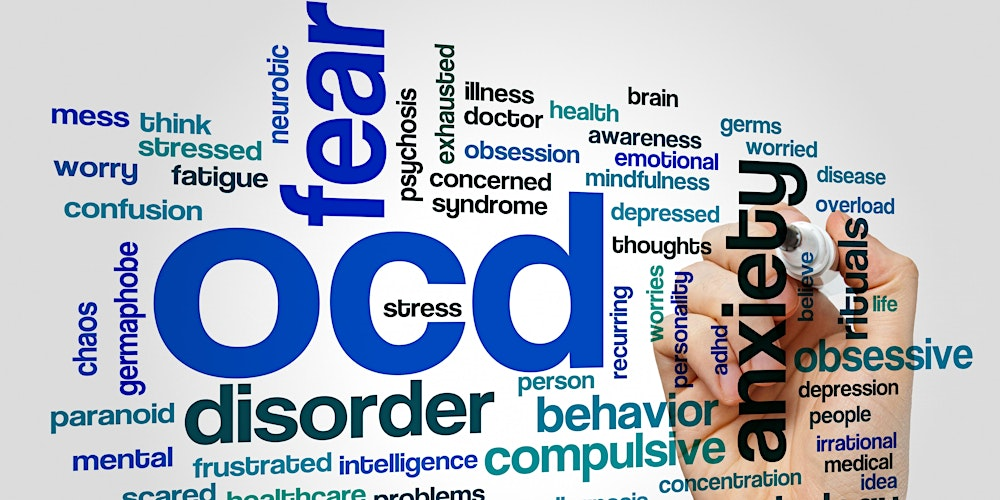Obsessive-Compulsive Disorder (OCD) is a chronic mental health condition characterized by intrusive, unwanted thoughts (obsessions) and repetitive behaviors or mental acts (compulsions) performed to alleviate the distress caused by these thoughts. OCD can significantly impair daily functioning and quality of life. This article provides detailed information about OCD, its symptoms, and treatment options, along with personal stories and expert advice on managing the disorder. It also examines the prevalence of OCD in the UK, USA, and Canada.
Understanding OCD
OCD is an anxiety disorder that affects people of all ages and backgrounds. It often begins in childhood or adolescence but can also develop in adulthood. The disorder involves a cycle of obsessions and compulsions:
- Obsessions: These are recurrent and persistent thoughts, urges, or images that cause significant anxiety or distress. Common obsessions include fears of contamination, fears of harming oneself or others, and unwanted taboo thoughts involving sex, religion, or harm.
- Compulsions: These are repetitive behaviors or mental acts performed to neutralize the anxiety caused by obsessions. Common compulsions include washing, cleaning, checking, counting, and repeating actions. While performing compulsions may provide temporary relief, the anxiety soon returns, creating a vicious cycle.
Symptoms of OCD
OCD symptoms can vary widely among individuals but generally fall into certain categories:
- Contamination Obsessions and Cleaning Compulsions: Fear of germs or contamination, leading to excessive hand-washing or cleaning.
- Harm Obsessions and Checking Compulsions: Fears of causing harm to oneself or others, resulting in repeated checking of locks, appliances, or one’s own actions.
- Symmetry Obsessions and Ordering Compulsions: Need for symmetry or exactness, leading to arranging and rearranging items until they feel “just right.”
- Forbidden or Taboo Thoughts: Intrusive thoughts about sex, religion, or harm that cause significant distress and may lead to mental rituals to neutralize them.
Prevalence of OCD
United Kingdom: In the UK, OCD affects approximately 1-2% of the population, translating to around 750,000 to 1.5 million people. It is one of the most common mental health conditions in the country, with many individuals experiencing symptoms in childhood or adolescence.
United States: In the USA, OCD affects about 2-3% of the population, which means around 6 to 9 million people live with the disorder. OCD is recognized as a significant public health concern, and efforts to raise awareness and improve access to treatment have been ongoing.
Canada: In Canada, the prevalence of OCD is similar, affecting about 1-2% of the population, or roughly 370,000 to 740,000 people. Canadian mental health organizations emphasize the importance of early diagnosis and treatment to manage the disorder effectively.
Treatment Options for OCD
Effective treatment for OCD typically involves a combination of psychotherapy, medication, and self-help strategies. The primary treatment modalities include:
- Cognitive Behavioral Therapy (CBT): CBT, particularly Exposure and Response Prevention (ERP), is the most effective treatment for OCD. ERP involves gradually exposing individuals to feared situations or thoughts without allowing them to engage in compulsive behaviors. This helps reduce the anxiety associated with obsessions and weaken the compulsion cycle.
- Medications: Selective Serotonin Reuptake Inhibitors (SSRIs) are commonly prescribed to help manage OCD symptoms. These medications increase the levels of serotonin in the brain, which can help reduce the intensity of obsessions and compulsions.
- Mindfulness and Relaxation Techniques: Mindfulness-based approaches can help individuals become more aware of their thoughts and reduce the impact of obsessions. Relaxation techniques such as deep breathing, meditation, and progressive muscle relaxation can also alleviate anxiety.
- Support Groups and Peer Support: Joining support groups, either in-person or online, can provide individuals with OCD a sense of community and shared understanding. Peer support can offer practical advice and emotional encouragement.
Personal Stories and Expert Advice
Personal stories of individuals living with OCD can provide valuable insights into the challenges and triumphs associated with the disorder. Here are some common themes and expert advice for managing OCD:
- Acceptance and Commitment: Accepting the presence of OCD and committing to treatment is crucial. One individual shared how accepting their diagnosis and committing to ERP therapy helped them gain control over their symptoms.
- Building a Support System: Having a strong support system of family, friends, and mental health professionals is essential. A young woman discussed how her family’s understanding and support played a significant role in her recovery journey.
- Developing Coping Strategies: Learning and practicing coping strategies can help manage daily stressors. A man with OCD explained how mindfulness meditation and regular exercise helped him cope with anxiety and reduce compulsive behaviors.
- Maintaining Consistency in Treatment: Consistency in following treatment plans, including medication and therapy, is vital for long-term management. An expert advised that individuals with OCD should continue their treatment even when symptoms improve to prevent relapse.
Expert Recommendations for Managing OCD
Experts in the field of OCD offer several recommendations for managing the disorder effectively:
- Early Intervention: Seeking help early can prevent the worsening of symptoms and improve the chances of successful treatment. If you suspect you have OCD, consult a mental health professional as soon as possible.
- Personalized Treatment Plans: Treatment should be tailored to individual needs, considering the severity of symptoms and personal circumstances. A combination of ERP, medication, and self-help strategies often yields the best results.
- Education and Awareness: Educating oneself and loved ones about OCD can reduce stigma and foster a supportive environment. Understanding that OCD is a medical condition, not a character flaw, is essential for effective management.
- Regular Follow-ups: Regular follow-ups with mental health professionals ensure that treatment plans are adjusted as needed and provide ongoing support. Continuous monitoring can help address any emerging issues promptly.
- Self-Care and Lifestyle Changes: Incorporating self-care practices and making lifestyle changes can enhance overall well-being. Healthy eating, regular physical activity, adequate sleep, and stress management techniques are important components of self-care.
Conclusion
Obsessive-Compulsive Disorder (OCD) is a complex and challenging mental health condition that affects millions of people worldwide. Understanding its symptoms, recognizing its prevalence, and exploring effective treatment options are crucial steps in managing the disorder. Personal stories and expert advice underscore the importance of early intervention, consistent treatment, and strong support systems.
By raising awareness and promoting a compassionate understanding of OCD, we can help those affected lead fulfilling lives and reduce the stigma associated with mental health disorders. With the right support and treatment, individuals with OCD can manage their symptoms and achieve a better quality of life.




